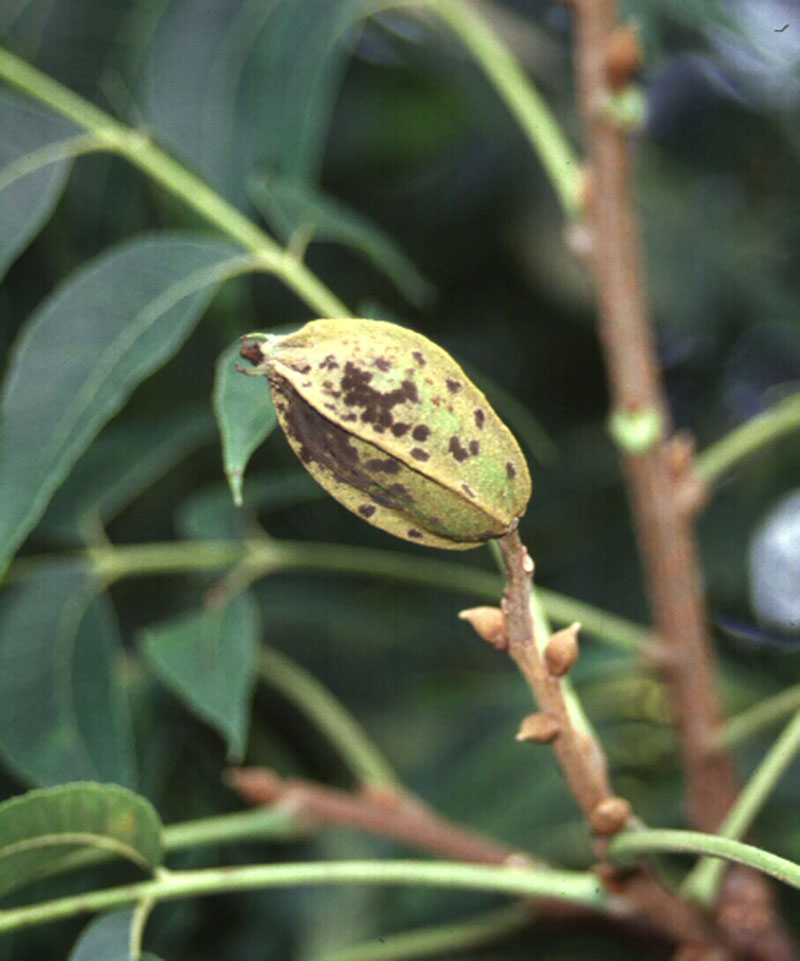By Clint Thompson
First and foremost on the minds of pecan producers in Georgia and Alabama should be prevention of any potential scab disease development following recent storms.

Lenny Wells, University of Georgia (UGA) Extension pecan specialist, discusses why this time of the production season is so important for growers to apply fungicides and protect their pecans from the disease.
“This is the most critical time for it, because those nuts are about to start that rapid nut growth or are in that phase already,” Wells said. “They’re growing so fast, and that’s really when the scab jumps on them. Now they’ve really got to stay tight on them in this weather that we’re having.”
Scab is a fungal disease that infects the leaves or nuts of pecan trees. If it impacts the nut early enough, scab can cause the nut to blacken and fall from the tree. It thrives on trees that have received moisture. Some growers may make between 10 and 12 fungicide applications during an average year to fight scab. The more it rains during the summer, the more applications a grower is likely to make.
The fungal pathogen that causes scab overwinters in the tree as lesions on stems and old nut shucks that remain in the tree after harvest. When temperatures begin to warm in the spring, the fungus becomes active and starts to produce new spores that are spread by rain and wind.
Producers have experienced an onslaught of rain and wind the past two weeks. Wells stresses that the volume of rain does not matter as much as how frequently it occurs. It presents problems for producers trying to apply fungicides.
“When you’re getting it every day, it’s just continuously a perfect environment for scab to grow. They have a hard time that if they need to spray and it’s raining every day, you can’t get out there and spray them even though you need to,” Wells said. “Sometimes if you do, you get out there and spray them and then an hour later you get rain, and it washes some off. That’s a problem. It’s really tough in this kind of weather.”









